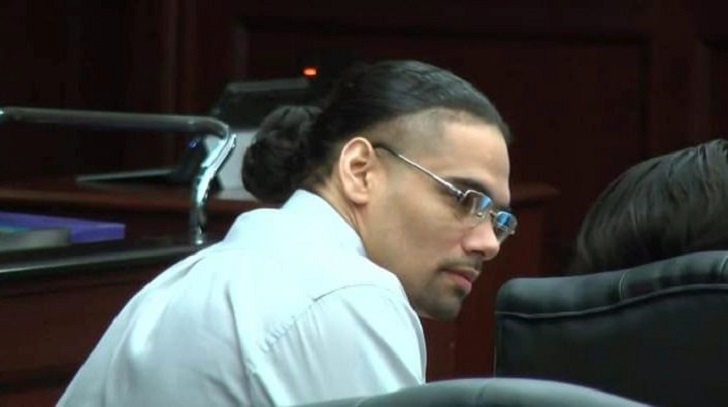Johnathan Quiles, a Jacksonville man convicted of first-degree murder in the death of his 16-year-old pregnant niece, Iyana Sawyer, is demanding a new trial. In September, a jury found Quiles guilty of raping, impregnating, and ultimately killing Sawyer, along with her unborn child. Quiles was also found guilty of sexual battery.
The court sentenced Quiles to life in prison without the possibility of parole, with additional consecutive life sentences for the sexual battery charge. This designation ensures that Quiles will spend the rest of his life behind bars, labeled as a sexual predator.

@notijax_la_voz_de_los_hispanos | Instagram | The court sentenced Quiles to life in prison without the possibility of parole, with additional consecutive life sentences for the sexual battery charge.
However, Quiles does not quietly accept his fate. In a letter to Judge Anthony R. Salem, received by the Duval County Clerk of Courts on October 24, Quiles claimed that he did not have sufficient time to review the state's evidence, including depositions provided to him just hours before the jury selection. According to Quiles, the extensive stack of papers was delivered too late for him to prepare an adequate defense.
Quiles also accused Judge Salem of displaying emotional bias during the trial. He wrote that the judge was visibly crying during witness testimonies and while impact statements were read, suggesting that these emotional displays could have influenced the jury's decision. Quiles believes that these actions tipped the scales of justice against him.
Emotional Bias and Judicial Conduct
The claims made by Johnathan Quiles in his letter to Judge Salem raise serious questions about the conduct of the trial. If a judge exhibits visible emotional responses during a trial, it can be argued that such behavior may affect the impartiality expected in a court of law. Quiles asserts that the judge's tears and rushed proceedings during cross-examinations compromised his right to a fair trial.

@actionnewsjax | Instagram | The claims made by Johnathan Quiles in his letter to Judge Salem raise serious questions about the conduct of the trial.
Quiles wrote, "Your honor during guilt phase you not only rushed my council in the cross, you were visibly crying during witness testimony. During the penalty phase, while the impact statements were being read, you also were crying on the bench, and again during the last phase, the sentencing phase."
These accusations suggest that the emotional climate of the courtroom swayed the jury's perception and, ultimately, their verdict. Quiles' assertion that public comments corroborated the judge's emotional display adds weight to his plea for a retrial.
Johnathan Quiles Plea for a New Trial
In his letter, Johnathan Quiles reiterated his belief that the judge's conduct during the trial compromised its fairness. He emphasized that many people, including his defense team, noticed the judge's emotional demeanor, which he argues could have influenced the jury's decision-making process.
Quiles concluded his letter by stating, "I believe in good faith these issues I have brought to light should grant me a new and fair trial concerning the judiciary." This plea highlights his contention that the trial was marred by judicial bias and procedural unfairness.
Legal Implications and the Path Forward
Johnathan Quiles' request for a new trial highlights the importance of judicial impartiality and the defendant's right to a fair trial. If the court finds merit in Quiles' claims, it could lead to a significant legal review of the case proceedings.

@notijax_la_voz_de_los_hispanos | Instagram | Johnathan Quiles' request for a new trial highlights the importance of judicial impartiality and the defendant's right to a fair trial.
Legal experts and the public will closely watch how the judicial system responds to Quiles' demands. The outcome of this request could set a precedent for how emotional conduct by judges is addressed in future trials. The integrity of the judicial process hinges on the assurance that all defendants receive a fair trial, free from undue influence or bias.








